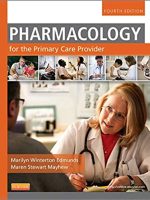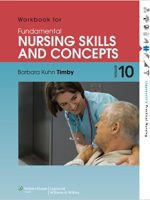Medical Surgical Nursing Ignatavicius 7th Edition: Enhancing Your Test Bank Content
If you are a nursing student or an instructor looking to enhance your teaching and evaluation materials, the Medical Surgical Nursing Ignatavicius 7th Edition Test Bank is an essential resource. This test bank provides a wide range of multiple-choice questions that cover various topics in medical-surgical nursing, helping both students and educators assess their knowledge and understanding of the subject matter.
ISBN-10: 1437727999, ISBN-13: 9781437727999
The Test Bank For Medical Surgical Nursing Ignatavicius 7th Edition covers important chapters such as Introduction to Medical-Surgical Nursing, Safety in Health Care, Client Centered Care, Principles of Teaching/Learning, and more. Each question is designed to test the reader’s comprehension, application, and critical thinking skills in the field of medical-surgical nursing.
FAQs
Q: How can the Test Bank For Medical Surgical Nursing Ignatavicius 7th Edition be used?
A: The test bank can be used by nursing instructors to create quizzes, exams, and assignments for their students. It can also be used by students to practice and test their knowledge of medical-surgical nursing concepts.
Q: Is this test bank updated to reflect current medical-surgical nursing practices?
A: Yes, the Test Bank For Medical Surgical Nursing Ignatavicius 7th Edition is regularly updated to ensure that it reflects the most current practices and guidelines in the field of medical-surgical nursing.
Q: Can students use this test bank for self-assessment and study?
A: Absolutely! Students can use this test bank to assess their understanding of medical-surgical nursing concepts and to prepare for exams and clinical practice.
Q: Can the test bank be customized to suit specific teaching needs?
A: Yes, nursing instructors can customize the test bank by selecting specific questions that align with their course objectives and teaching style.
In conclusion, the Test Bank For Medical Surgical Nursing Ignatavicius 7th Edition is a valuable resource for nursing educators and students alike. By incorporating this test bank into your teaching and learning materials, you can enhance the effectiveness of your medical-surgical nursing instruction and evaluation processes. With its comprehensive set of multiple-choice questions, this test bank is sure to be a beneficial addition to any nursing curriculum.In the field of nursing, it is essential for healthcare providers to prioritize safe and effective care environment while managing legal rights and responsibilities. Nurses serve as advocate for their clients, ensuring that their wishes and concerns are heard and addressed. Let’s delve into some scenarios from a test bank that highlight the importance of patient advocacy and effective communication in nursing practice.
**Scenario 1: Client Advocacy for Treatment Options**
– **Situation**: A client scheduled for a mastectomy expresses a desire for a lumpectomy instead.
– **Response**: The nurse calls the surgeon to explain the client’s request for a different treatment option.
– **Rationale**: Nurses should support clients in making informed decisions about their care, including changes in treatment plans. Effective communication and advocating for the client’s wishes are crucial in such situations.
**Scenario 2: Interdisciplinary Team Collaboration in Emergency Care**
– **Priority Assessment Data**: When a client is admitted to the emergency department with a lacerated artery.
– **Response**: Sharing information on vital signs like blood pressure and pulse with the interdisciplinary team.
– **Rationale**: Immediate assessment of vital signs is crucial in emergency situations to determine the client’s hemodynamic status and prioritize interventions accordingly.
**Scenario 3: Client Education in Ambulatory Care**
– **Intervention**: A client expects to receive teaching on changing a dressing in an ambulatory care setting.
– **Rationale**: Client education is a fundamental role of medical-surgical nurses, and empowering clients with self-care skills enhances their overall well-being.
**Scenario 4: Effective Hand-off Communication**
– **Recommendation**: An ED nurse suggests contacting a sitter and behavioral health due to a client’s suicide risk during hand-off to the medical-surgical floor.
– **Rationale**: Clear recommendations and communication during hand-offs are vital to ensure continuity of care and address client safety concerns effectively.
**Ethical Principle in Treatment Decision**
– **Principle**: Weighing the benefits of chemotherapy against potential side effects emphasizes the ethical principle of beneficence.
– **Rationale**: Beneficence focuses on promoting client well-being while minimizing harm, allowing clients to make informed decisions about their care.
**Safety in Medication Administration**
– **Action**: When faced with a potentially incorrect medication dose, the nurse should first communicate with the physician to discuss the order.
– **Rationale**: Communication with the healthcare team is essential in ensuring safe medication administration and preventing errors in client care.
### Frequently Asked Questions (FAQs)
**1. How can nurses advocate for their clients in healthcare settings?**
Nurses can advocate for their clients by ensuring their voices are heard, respecting their autonomy, and facilitating informed decision-making regarding their care.
**2. What is the role of communication in nursing practice?**
Effective communication is crucial in nursing practice as it promotes teamwork, ensures patient safety, and allows for the delivery of quality care.
**3. Why is client education important in nursing care?**
Client education empowers patients to take an active role in their health management, promotes adherence to treatment plans, and enhances overall health outcomes.
### Conclusion:
In conclusion, maintaining a safe and effective care environment in nursing practice involves upholding legal rights, promoting ethical decision-making, and advocating for clients’ well-being. Effective communication, collaboration with interdisciplinary teams, and prioritizing patient education contribute to the delivery of high-quality care in healthcare settings. By incorporating these principles and practices, nurses can ensure positive outcomes for their clients and uphold the standards of professional nursing care.










Be the first to review “Medical Surgical Nursing Ignatavicius 7th Edition-Test Bank”